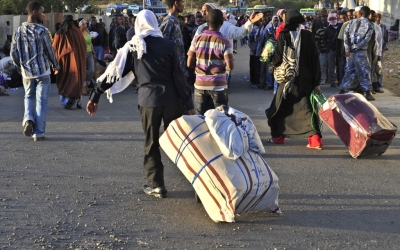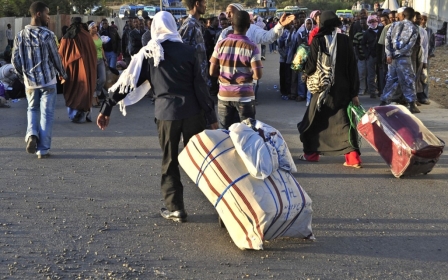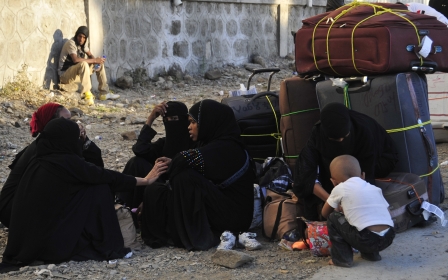Saudi Arabia begins repatriation of detained workers to Ethiopia

Saudi Arabia has begun repatriating thousands of Ethiopians who have been held in detention centres that have been described as "hellish" and "squalid".
Photos posted online by Ethiopian state media showed former detainees jubilantly walking off a plane that had arrived in the capital, Addis Ababa, on Tuesday.
The first batch of 296 returnees had been detained in the notorious Shumaisi detention centre near Jeddah, which holds 16,000 Ethiopian migrants.
Nebiyu Tedla, Ethiopia's deputy consul general in Jeddah, told the Telegraph that he hoped to gradually increase the number of repatriations.
"Overall, there are roughly 40,000 Ethiopian migrants ready to go back home," said Tedla. "For now it will be 1,000 returnees per week. But hopefully, we will be given the green light to increase the numbers."
Tedla added that detainees from the Jizan detention centre, near the Saudi border with Yemen, would also be flown home.
Last year, a document leaked to the Telegraph showed that the Ethiopian government had tried to silence migrant workers who were exposing poor conditions inside Saudi detention centres.
The documents, leaked from the Ethiopian consulate in Jeddah, warned Ethiopians of “legal repercussions” if they continued to upload photos and videos from the detention centres on social media.
It warned migrants to stop sharing accounts of their abuse because it was causing “distress for families and the greater Ethiopian community”.
Expelled from Yemen
In March, Amnesty International revealed that Houthi officials in Yemen had expelled thousands of Ethiopian migrant workers and their families to Saudi Arabia.
At the time, thousands of Ethiopians were working in northern Yemen, earning money to seek passage to travel and work in Saudi Arabia.
But when the Covid-19 pandemic began to worsen, Houthi officials ejected the Ethiopian workers and sent them to the Saudi border.
Once they crossed the border, the Ethiopians were apprehended by Saudi security officials who confiscated their belongings and in some cases beat them.
Detainees who spoke to Amnesty said they were chained together in pairs and forced to use their cell floors as toilets.
Among the detained were pregnant women and babies, with three detainees telling Amnesty they saw children who had died.
Most of the detainees were sent to the Jizan central prison, while the International Organisation for Migration estimates that 2,000 Ethiopians remain in Yemen.
Middle East Eye delivers independent and unrivalled coverage and analysis of the Middle East, North Africa and beyond. To learn more about republishing this content and the associated fees, please fill out this form. More about MEE can be found here.




